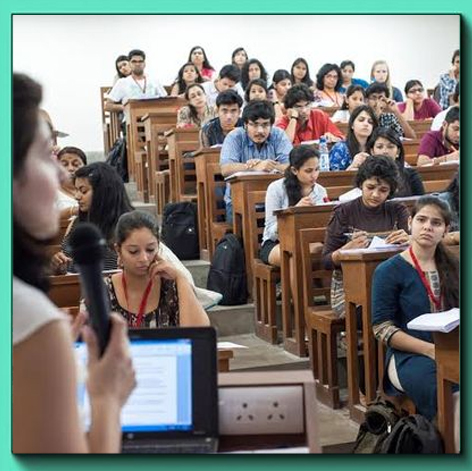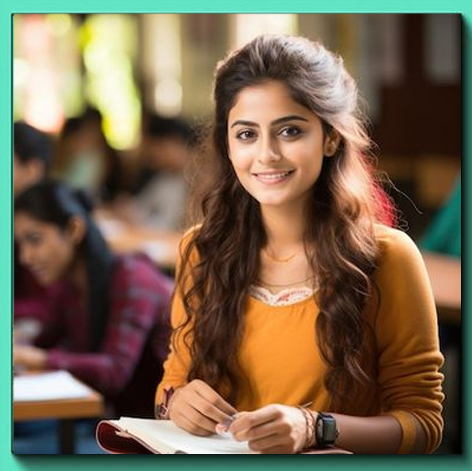
About SSC Examination Coaching
Staff Selection Commission -SSC is an organization which recruits staff for various posts in the Ministries and Departments of Government of India and it also recruits staff for the subordinate offices also.
SSC conducts various competitive exams for Grade “B” and Grade “C” posts in all the Ministries, Departments and its subordinates. Every year candidate from all over India apply for the exam.
VXplore IAS Academy has expertise in coaching for SSCs competitive examination aspirants for various posts depending on the requirement for Ministries and Departments of Government of India.
Trainers
Course Ware
Free
Available Seats
30 per Batch
Schedule
Morning - Evening & Fast Track
Online
Flexible Timings
Assessment
Test Series
Benefits of getting coaching from VXplore IAS Academy:
Choosing KPSC coaching at VXplore Academy comes with a plethora of benefits that are tailored to enhance the preparation journey and maximize the chances of success in KPSC examinations.
Here are some of the key benefits:
Experienced and Expert Faculty: VXplore Academy boasts a team of experienced and highly qualified faculty members. These experts have a strong track record of mentoring KPSC aspirants and possess in-depth knowledge of the examination patterns, trends, and strategies.
Comprehensive Syllabus Coverage:
The coaching at VXplore Academy ensures thorough coverage of the KPSC syllabus. From General Studies to specific subjects and optional papers, the curriculum is designed to equip students with a solid foundation in all relevant areas.
Personalized Attention:
The batch size at VXplore Academy is kept small to ensure personalized attention to each student. Faculty members can address individual doubts and provide tailored feedback to help students improve their performance.
Strategic Study Material:
The study material provided at VXplore Academy is curated strategically to offer concise yet comprehensive content, facilitating effective learning and revision.
Regular Mock Tests and Assessments:
To gauge the progress of students and simulate the actual examination environment, regular mock tests and assessments are conducted. This helps students identify their strengths and weaknesses and work on areas that need improvement.
Current Affairs Analysis:
Staying updated with current affairs is crucial for KPSC exams. VXplore Academy offers dedicated sessions for comprehensive current affairs analysis and discussions.
Interview Guidance:
VXplore Academy provides guidance for the interview stage, including mock interviews, group discussions, and personality development sessions to boost candidates' confidence and presentation skills.
Flexibility in Course Options:
The academy offers various course options, including regular courses, crash courses, and weekend courses, allowing candidates to choose the program that best suits their schedule and requirements.
Success Stories and Track Record:
VXplore Academy has a proven track record of successful KPSC aspirants who have secured top ranks and prestigious positions in the Karnataka Public Service Commission exams.
Supportive Learning Environment:
The academy fosters a supportive and motivating learning environment where students can interact, share knowledge, and learn from each other's experiences.
Personal Development and Soft Skills:
Along with academic preparation, VXplore Academy emphasizes personal development, communication skills, and overall personality grooming to help candidates excel in the selection process.
By choosing KPSC coaching at VXplore Academy, aspirants can unlock their full potential, gain a competitive edge, and set themselves on the path to achieving their dreams of serving the state of Karnataka through the KPSC examinations.

About SSC - Staff Selection Commission
SSC stands for Staff Selection Commission, an organization under the Government of India responsible for recruiting staff for various government departments and ministries. SSC conducts a range of examinations to select candidates for different job profiles, catering to both Group B (non-gazette) and Group C (non-technical and non-ministerial) posts in the central government.
Some of the popular SSC examinations include:
SSC Combined Graduate Level (SSC CGL):
SSC CGL is one of the most sought-after examinations and recruits candidates for various Group B and Group C posts in different ministries, departments, and organizations.
SSC Combined Higher Secondary Level (SSC CHSL):
SSC CHSL recruits candidates for posts like Lower Division Clerk (LDC), Data Entry Operator (DEO), Postal/Sorting Assistant, and Court Clerk.
SSC Junior Engineer (SSC JE):
SSC JE is for engineering graduates who aspire to work in various government departments as Junior Engineers.
SSC Multi-Tasking Staff (SSC MTS):
SSC MTS recruits candidates for non-technical, multitasking staff in various central government departments and ministries.
SSC Stenographer:
SSC Stenographer examination selects candidates for the post of Stenographers in Grade 'C' and Grade 'D' in various government departments.
SSC Selection Post:
SSC Selection Post is for recruitment in various Group B and Group C posts, including technical and non-technical positions.
The selection process for SSC examinations typically involves a two-tier or three-tier system, depending on the examination. The first tier is a computer-based examination, and the subsequent tiers may involve descriptive tests, skill tests, and document verification as per the requirement of the job profile.
SSC examinations are highly competitive and attract a large number of candidates from across the country. Aspirants need to prepare well and cover subjects like General Intelligence & Reasoning, General Awareness, Quantitative Aptitude, and English Language, depending on the specific examination.
SSC examinations offer a gateway to secure prestigious government jobs with various perks and benefits. Aspirants can find detailed information about the exams, notifications, syllabus, and preparation tips on the official SSC website and other reliable sources. Additionally, joining coaching programs like those offered at VXplore Academy can provide valuable guidance and support in preparing effectively for SSC examinations.

SSC CGL -COMBINED GRADUATE LEVEL EXAM
SSC-CGL stands for "Staff Selection Commission - Combined Graduate Level." It is a competitive examination conducted by the Staff Selection Commission (SSC) in India. SSC-CGL is one of the most sought-after examinations for government job aspirants in India, and it is conducted to recruit candidates for various Group B and Group C posts in various government ministries, departments, and organizations.
Key points about SSC-CGL include:
Eligibility:
To be eligible for SSC-CGL, candidates typically need to have a bachelor's degree from a recognized university. The eligibility criteria can vary depending on the specific post, so it's important to check the official notification for the examination.
Tiers of Examination:
SSC-CGL is conducted in four tiers:
Tier-I:
It consists of multiple-choice questions (MCQs) and is primarily a screening test.
Tier-II:
It includes multiple papers, some of which are compulsory, and some are based on the specific posts applied for. It is more specialized and in-depth than Tier-I.
Tier-III:
This is a descriptive paper where candidates have to write essays, précis, letters, and applications.
Tier-IV:
This tier assesses specific skills required for certain government jobs, such as data entry speed or computer proficiency.
Posts:
Successful candidates can be appointed to various posts, including Assistant Audit Officer, Assistant Section Officer, Inspector of Income Tax, and others, depending on their performance and preferences.
Selection Process:
The selection process includes a preliminary examination (Tier-I), a main examination (Tier-II), a descriptive paper (Tier-III), and a skill test or computer proficiency test (Tier-IV).
Syllabus:
The syllabus for SSC-CGL covers topics like quantitative aptitude, reasoning, English language, and general awareness. The syllabus can vary slightly for different tiers and posts.
Competition:
SSC-CGL is highly competitive, and lakhs of candidates appear for the examination every year.
Job Security:
Jobs obtained through SSC-CGL are known for their job security, good salary, and other perks associated with government employment.
Notification:
The SSC releases an annual notification for SSC-CGL, which includes details about the examination, eligibility criteria, and application process.

SSC - Combined Higher Secondary Level (CHSL)
The SSC CHSL (Staff Selection Commission - Combined Higher Secondary Level) examination is a popular and highly competitive recruitment examination conducted by the Staff Selection Commission (SSC) for various Group C positions in the central government. The CHSL examination selects candidates for posts like Lower Division Clerk (LDC), Data Entry Operator (DEO), Postal/Sorting Assistant, and Court Clerk in different central government ministries, departments, and organizations.
Key Highlights of SSC CHSL Examination:
Eligibility Criteria:
To be eligible for the SSC CHSL examination, candidates must have completed their 10+2 (intermediate) examination from a recognized board or university. The age limit for candidates typically ranges between 18 to 27 years, although it may vary based on the specific examination year.
Selection Process:
The SSC CHSL examination is a three-tier process:
Tier-I:
Computer-Based Examination (Objective type) - This is the first stage of the examination, testing candidates' knowledge in General Intelligence, General Awareness, Quantitative Aptitude, and English Language.
Tier-II:
Descriptive Paper - Shortlisted candidates from Tier-I appear for a descriptive paper that assesses candidates' writing skills in English/Hindi. Candidates have to write an essay and a letter/application within a prescribed word limit.
Tier-III:
Skill Test/Typing Test - For some posts, a skill test (for DEO) or typing test (for LDC, Postal/Sorting Assistant, and Court Clerk) is conducted to check candidates' speed and accuracy in data entry or typing.
Exam Pattern:
The Tier-I examination comprises multiple-choice questions (MCQs) with four sections, each having 25 questions, making it a total of 100 questions. The duration of the Tier-I examination is 60 minutes. Tier-II is a descriptive paper conducted for 100 marks, and the duration is 60 minutes. Tier-III is a qualifying stage, where candidates need to meet the minimum qualifying criteria.
Syllabus:
The syllabus for the SSC CHSL examination includes topics like General Intelligence & Reasoning, General Awareness, Quantitative Aptitude, and English Language. For Tier-II, candidates need to focus on essay writing, letter/application writing, and comprehension.
Notification and Application:
SSC releases the CHSL examination notification on its official website (ssc.nic.in) and in leading newspapers. Interested candidates need to apply online within the given application window.
The SSC CHSL examination provides an excellent opportunity for 10+2 pass candidates to secure government jobs with various perks and benefits. As the competition is tough, candidates should start their preparation early and practice with previous years' question papers and mock tests. Additionally, joining coaching programs like those offered at VXplore Academy can provide valuable guidance and support in preparing effectively for the SSC CHSL examination.
Subjects Covered under SSC-CHSL
The SSC CHSL (Staff Selection Commission - Combined Higher Secondary Level) examination consists of four subjects that are tested in the Tier-I (Computer-Based Examination) of the selection process. The subjects covered under SSC CHSL are as follows:
General Intelligence and Reasoning:
This section evaluates candidates' logical and analytical abilities. It includes questions on analogies, similarities, differences, space visualization, problem-solving, analysis, judgment, decision-making, visual memory, discrimination, observation, relationship concepts, arithmetical reasoning, verbal and figure classification, arithmetic number series, non-verbal series, coding, and decoding.
General Awareness:
This section assesses candidates' knowledge of current events and general awareness about the environment around them. Questions are asked on matters of everyday observations and experience in scientific aspects, India's history, culture, geography, economics, general policy, and scientific research.
Quantitative Aptitude:
This section tests candidates' numerical ability and mathematical skills. It includes questions on number systems, fundamental arithmetical operations, algebra, geometry, mensuration, trigonometry, statistical charts, and graphs.
English Language:
This section evaluates candidates' understanding of the English language. It includes questions on spotting errors, fill in the blanks, synonyms, antonyms, spelling/detecting misspelled words, idioms and phrases, one-word substitution, improvement of sentences, active/passive voice, direct/indirect narration, and comprehension passages.
The Tier-I examination is conducted in an online mode with multiple-choice questions (MCQs). Each section carries 25 questions, making it a total of 100 questions. The duration of the Tier-I examination is 60 minutes.
It's important for candidates to thoroughly prepare for all the subjects covered under SSC CHSL to perform well in the examination. Practicing with previous years' question papers, taking mock tests, and enrolling in coaching programs like those offered at VXplore Academy can provide valuable guidance and support to candidates in their preparation for the SSC CHSL examination.

SSC - MTS
About SSC-MTS Examinations
The SSC MTS (Staff Selection Commission - Multi-Tasking Staff) examination is a national-level recruitment examination conducted by the Staff Selection Commission (SSC). The SSC MTS examination aims to select candidates for various Group C posts in different central government ministries, departments, and offices. As the name suggests, MTS positions are multi-tasking in nature and involve performing a variety of tasks in the office premises.
Key Highlights of SSC MTS Examination:
Eligibility Criteria:
To be eligible for the SSC MTS examination, candidates must have passed the 10th standard (matriculation) or an equivalent examination from a recognized board or university. The age limit for candidates typically ranges between 18 to 25 years, although it may vary based on the specific examination year.
Selection Process:
The SSC MTS examination is a two-tier process:
Tier-I:
Paper-I (Computer-Based Examination) - This is the first stage of the examination, testing candidates' knowledge in General Intelligence & Reasoning, Numerical Aptitude, General English, and General Awareness.
Tier-II:
Paper-II (Descriptive Paper) - Shortlisted candidates from Tier-I appear for a descriptive paper that requires candidates to write a short essay or letter.
Exam Pattern:
The Tier-I examination comprises multiple-choice questions (MCQs) with four sections, each having 25 questions, making it a total of 100 questions. The duration of the Tier-I examination is 90 minutes. Tier-II is a descriptive paper conducted for 50 marks, and the duration is 30 minutes.
Syllabus:
The syllabus for the SSC MTS examination includes topics like General Intelligence & Reasoning, Numerical Aptitude, General English, and General Awareness.
Notification and Application:
SSC releases the MTS examination notification on its official website (ssc.nic.in) and in leading newspapers. Interested candidates need to apply online within the given application window.
The SSC MTS examination provides an excellent opportunity for candidates who have completed their 10th standard to secure government jobs in various central government departments and ministries. As the competition is tough, candidates should start their preparation early and practice with previous years' question papers and mock tests. Additionally, joining coaching programs like those offered at VXplore Academy can provide valuable guidance and support in preparing effectively for the SSC MTS examination.
Jobs under SSC-MTS
The SSC MTS (Multi-Tasking Staff) examination recruits candidates for various Group C non-gazette, non-ministerial positions in different central government ministries, departments, and offices. The jobs under SSC MTS are multi-tasking in nature and involve performing a variety of tasks in the office premises.
Some of the common job profiles that candidates can get through the SSC MTS examination include:
Peon:
Peons are responsible for performing general office tasks like delivering documents, maintaining cleanliness, and assisting other office staff.
Daftary:
Daftaries are responsible for maintaining records, files, and documents in an office.
Jamadar:
Jamadars help in maintaining office supplies and assisting in various office tasks.
Chowkidar:
Chowkidar are responsible for security-related tasks and maintaining the security of the office premises.
Safaiwala/Sweeper:
Safaiwalas or Sweepers are responsible for keeping the office premises clean and maintaining hygiene.
Mali/Gardener:
Malis or Gardeners take care of the office gardens and green spaces.
Junior Gestetner Operator:
Junior Gestetner Operators are responsible for operating and maintaining the Gestetner machine used for printing and duplicating documents.
Office Attendant: Office Attendants assist in various office tasks, including file movement, document delivery, and other general tasks.
General Cleaners:
General Cleaners are responsible for maintaining cleanliness and hygiene in the office premises.
It's important to note that the job profiles may vary from one department to another, and the responsibilities assigned to SSC MTS employees depend on the specific requirements of the office. While the job profiles may seem basic, SSC MTS jobs offer candidates an opportunity to work in a government setting, receive regular salary and benefits, and secure a stable government job with opportunities for career growth.
Candidates preparing for the SSC MTS examination should focus on the syllabus and topics covered in the examination to perform well and secure these multi-tasking positions in the central government offices. Proper preparation, including solving previous years' question papers and taking mock tests, can significantly enhance the chances of success in the SSC MTS examination.

